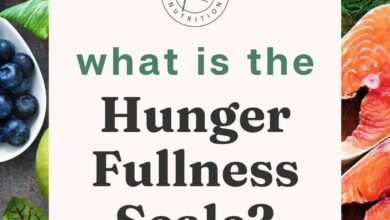Should I Fast After a Binge?

Wondering whether or not to fast after a binge? Keep reading to learn why it’s not a good idea, and what you should do instead.
Experiencing a binge eating episode can be very overwhelming. Just after realizing what has happened and what took place, you may feel overwhelmed, confused, or even ashamed. As a result, a common human reaction is to try and fix it or erase it. This often leads to fasting.
Unfortunately, fasting only perpetuates the situation. It leads to recurrent episodes of binge eating and fasting, with no end in sight. If you’ve experienced this cycle before, you’ll know exactly what we’re talking about.
Thankfully, there are five steps you can take to stop this cycle and move forward after a binge.
What is Binge Eating?
Before we discuss what should happen after a binge, it’s important to establish what binge eating really is.
Binge eating is characterized by the consumption of exceptionally large amounts of food in a short period of time with little to no self-control. Afterward, participants often feel guilt, stress, and shame. Binge eating is different from overeating in that it’s completely mindless and often recurrent. It also usually involves larger quantities of food.
Should I Fast After a Binge?
The short answer is no, and here’s why. Fasting ensures that the cycle will continue. You’ll eventually hit your breaking point and feel so hungry that you simply can’t take it anymore. The result? More often than not, another binge.
To prevent this from happening and move past this cycle for good, start by implementing the five steps below.
5 Steps You Should Take After a Binge Instead of Fasting
Lead With Compassion
Compassion is so important here. It sounds silly, it sounds like it’s not really that important. But in the context of binge eating, it’s very important. Binge eating and guilt go hand in hand. One often can’t survive without the other in this scenario.
By leading with compassion, you can start to slowly but surely remove the guilt. After you’ve engaged in a binge eating episode, it may feel natural to beat yourself up. But instead, try out utilizing compassion next time. With compassion and without judgment, ask yourself what happened and what went wrong. Empathize with yourself as you would a friend or a family member. Guilt propels the cycle, compassion ends it.
Eat in Accordance with Your Hunger
Fasting leads to extreme hunger, and extreme hunger can lead to binge eating. Smaller, more frequent meals lead to sustainable satiety and manageable hunger. This prevents extreme surges in hunger which lead to larger intakes of food and that overly full feeling. If we can remove extreme hunger and extreme fullness from the equation, you’re much less likely to engage in binge eating again.
In order to do this, touch base with your own unique hunger and satiety cues. And do so frequently! Periodically throughout the day, stop and pause. Ask yourself, how hungry am I? How full am I? Would eating something help to reduce my hunger pangs right now?
Over time, this will become easier and more natural. It will start to feel like second nature!
Ditch the Diet Foods and Eat Balanced Meals
Just as we discussed earlier, a common human reaction after binge eating is to try and fix it or erase it. Alongside fasting, diet foods are another common perceived solution. You ate too much, so now you should try your best to eat as little as possible, right?
You might think low-calorie diet foods are a good idea, but these will prevent you from feeling satiated and satisfied after eating. Which in turn will make it easier for you to mindlessly overeat. If on the other hand, you consume meals filled with rich nutrients that not only satiate you but also satisfy you, you’ll be much less likely to mindlessly overeat.
Stay Hydrated
Just as we need food for fuel, we need water as well! The body craves it. If we’re constantly dehydrated, this can make it more likely for us to seek out hydration through food. Be sure to keep water nearby throughout the day and stay hydrated as best as you can.
Move Gently and Don’t Overexercise
Back to that solution-based mindset. Exercise is another common perceived solution. “I ate too much so I’ll just exercise to compensate!”.
I’m sure you guessed it at this point, but this again perpetuates the cycle. Exercising, especially overexercising, utilizes more energy and exhausts us. What does the body do in response? It asks for more energy so it can recover and recuperate!
Instead of overexercising and attempting to punish yourself, gently and compassionately move your body in a way that feels good to you. That could be a brief walk or even a short yoga flow. We don’t want to cease movement altogether, but we certainly don’t want to push ourselves too hard and overexercise.
The Takeaway – Don’t Fast After a Binge
The main takeaway here is that fasting is not the answer. There are so many other viable options instead! Be kind to your body and yourself, and before you know it you’ll be on your way to breaking the cycle.
Do You Want to Experience More Balance with your Food Choices?
Then find your balanced eating type!
Take this 45-second free quiz to find out which balanced eating archetype you are, and what your unique type needs to maintain balance with the way you nourish yourself. That way, you can finally be free from food and diet obsession, maintain a balanced weight, and cultivate a positive relationship with food and your body.
Source link
#Fast #Binge




